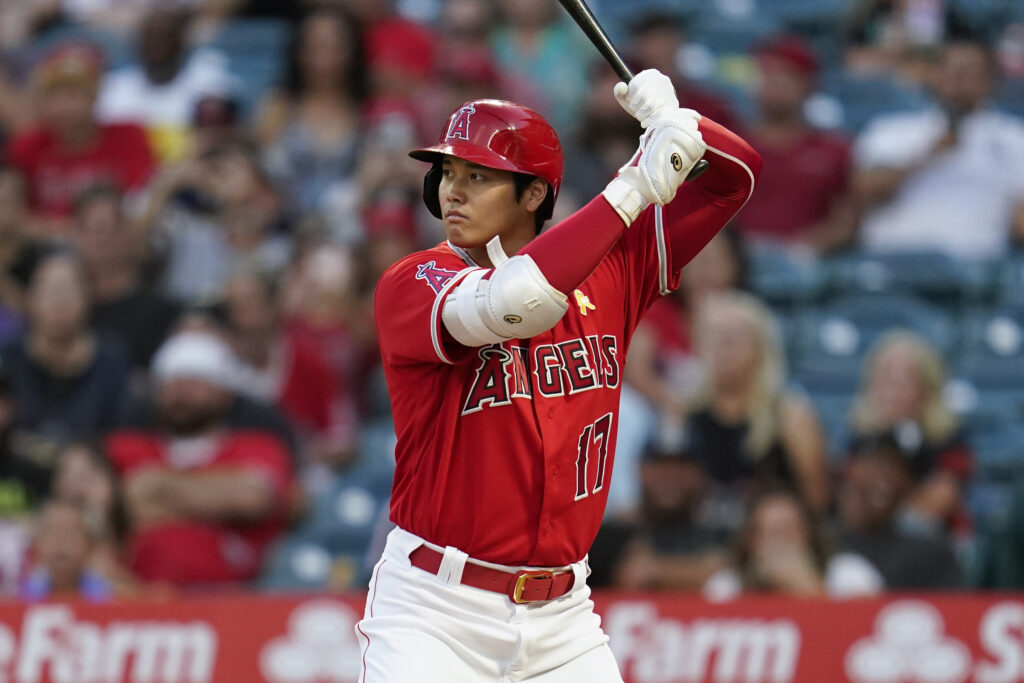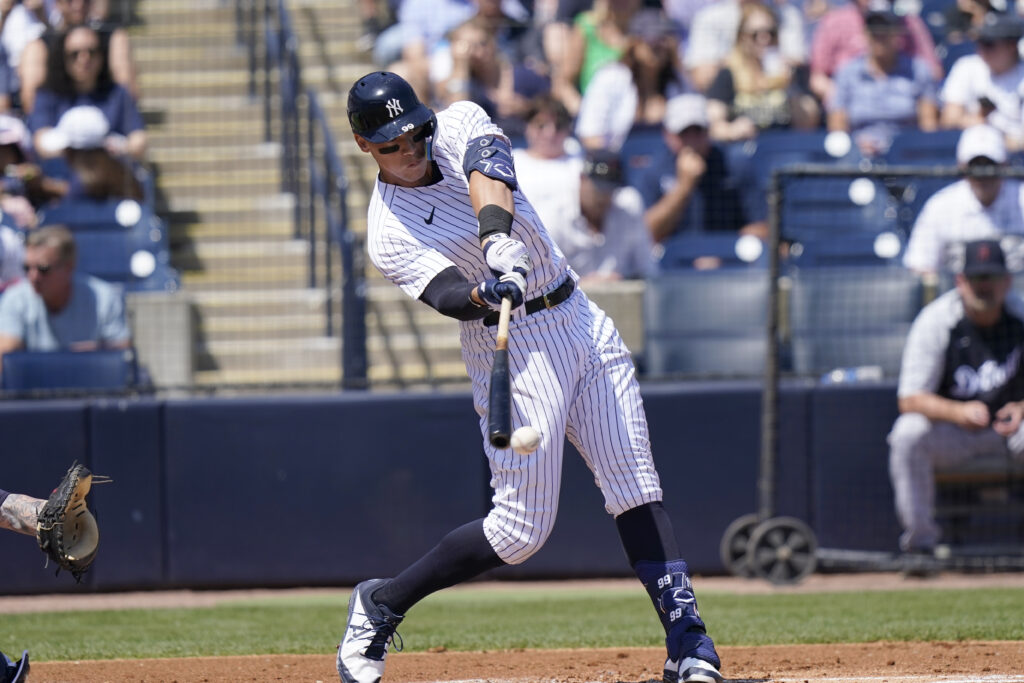
Fans of baseball and of baseball history have had much to feast upon this MLB season. In particular, the American League MVP choice between Shohei Ohtani and Aaron Judge presents a fascinating debate for fans of old-school baseball, new-school baseball and unheard-of-before baseball. By focusing on Ohtani and Judge, I mean no disrespect to Albert Pujols going out with a resurgent bang, as well as dignity, nor Paul Goldschmidt who has had a terrific season in the National League.
So much has been written and debated about whether Judge’s offensive numbers are enough to overcome Ohtani’s contributions as both a hitter and one of the best pitchers in baseball. The games of September 17 are instructive in the difficulty of the debate. Ohtani pitched seven shutout innings against the Mariners, struck out eight, and collected his 13th win — only because he doubled in a run in his first at bat and walked and scored in his second at bat. All eight Angels in between those two at-bats were retired. The Angels won 2-1. To say that he single-handedly won the game is not an overstatement. Meanwhile, Judge hit two home runs to inch closer to the American League single season record, drove in four runs and went 4 for 5 to raise his batting average almost to the top of the league. He could well achieve a hitting triple crown. How do you compare those two performances on the day? How do you compare them over a season?
In order to resolve this debate, at least in my own head, I’m going to draw on my own idiosyncrasies, and they cause me to tilt toward Ohtani. He has brought back into my consciousness two things that have been shrinking from modern baseball lore: the triple and the box score. In addition to hitting 46 home runs in 2021 and being among the league leaders again in 2022, Ohtani also led MLB in triples last year and is among the league leaders again this year. Watching a power hitter’s eyes light up when he knows that the trajectory of his hit may land him on third base is a throwback to an era when players worried less about pulling a hamstring and more about digging for that extra base.
The triple has become a dying priority — seemingly inconsistent with a player’s role as a power hitter. Only five players have ever led their league in triples and home runs in the same year, and four of them are in the Hall of Fame, including Mickey Mantle and Willie Mays. Jim Rice was the last to do it, in 1978. Ohtani came oh-so-close last year, and if not for Judge’s destruction of baseballs, would be close again this year. Judge, despite what might be the highest untainted season home run total for any player in MLB history, has zero triples. Ohtani takes off from the moment of contact. His speed from home plate to first is among the best in MLB. In a recent game, he went from home plate to first base in 3.97 seconds simply to avoid a double play. No less a power-hitting giant than Hank Aaron once said, “The triple is the most exciting play in baseball. Home runs win a lot of games, but I never understood why fans are obsessed with them.” To me, Ohtani’s triples reveal something more than just the statistic. They reveal how he plays the game, not just how well he plays the game.
Sponsored Content
Only one player who played as late as the 1970s is in the top 50 all time in triples: Roberto Clemente at No. 27. Stan Musial is the only player other than Clemente who played since 1960 (or since 1950) in the top 50 in all time triples, tied at No. 19 with “Rabbit” Maranville. When you’re not exactly known for your speed and are tied with a guy nicknamed “Rabbit,” it says something about how you played the game. And yes, I understand the argument about the different configurations of ballparks back in the day, but yet Musial and Clemente were able to do make it to third base in fairly modern ballparks (as were Lou Brock and Willie Mays, who are among the top 70). Ohtani is that kind of player. Judge is a phenomenal athlete and a good baserunner. He has stolen more bases this year than Ohtani and has been caught stealing fewer times. He is also a good defensive player, although “defense” in baseball generally starts and ends with pitching, which Ohtani showed in his recent outing against the Mariners. Judge cannot shut out the opposing team; Ohtani can, albeit only on days when he pitches (a factor that contributes to the debate as well).

And that brings us to my next reason for my Ohtani pick — the box score. Just as the triple has given way to the home run in modern baseball, so has the box score given way to highlights on “SportsCenter.” Ohtani is single-handedly bringing back my interest in the box score. In virtually every game he plays, there is a nugget in his line, particularly if he is pitching. Did he pitch enough innings for his ERA to qualify to be among the league leaders? (Right now, he is on track in innings and his ERA stands at 2.43). In how many of the most compelling categories in baseball has he remained in the top 10 or top 20 after that particular game — home runs, RBI, OPS, slugging percentage, triples, ERA, strikeouts by a pitcher, wins, WHIP? The fact that he shows up among the league leaders in such a variety of categories, including the most prestigious ones in both hitting and pitching, is remarkable and unprecedented — unless you are talking about Little League and the kid who has gone through puberty earlier than anyone else. The difference is that every player in MLB is post-pubescent, at least physically. Yes, I do look at Judge’s box score line to see whether he has increased his home run total and I enjoy watching his bombs on “SportsCenter.” But it is Ohtani who is drawing me to the box score.
If my assessment is coming across as being too hard on Judge, it is not intended. Judge and Ohtani share one trait in common that puts them above anyone else in baseball: When they are playing and you are in the stands, it is impossible to take your eyes off of them. There have been few players I personally remember who are like that — Bo Jackson comes to mind. The beauty of the reconfigured schedule for 2023, in which every team in baseball will play every other team, is that every baseball fan in America will have a chance to see these guys play. I don’t plan to miss it.
 Bob Latham is a partner at the law firm Jackson Walker, L.L.P., and a World Rugby board member. A compilation of his best columns titled “Winners & Losers: Rants, Riffs and Reflections on the World of Sports,” is available for purchase at amazon.com.
Bob Latham is a partner at the law firm Jackson Walker, L.L.P., and a World Rugby board member. A compilation of his best columns titled “Winners & Losers: Rants, Riffs and Reflections on the World of Sports,” is available for purchase at amazon.com.












 Copyright © 2025 by Northstar Travel Media LLC. All Rights Reserved. 301 Route 17 N, Suite 1150, Rutherford, NJ 07070 USA | Telephone: (201) 902-2000
Copyright © 2025 by Northstar Travel Media LLC. All Rights Reserved. 301 Route 17 N, Suite 1150, Rutherford, NJ 07070 USA | Telephone: (201) 902-2000